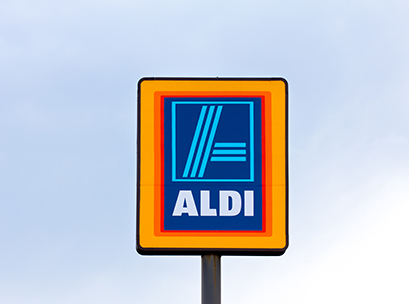The long wait is over. Aldi has finally arrived in Perth, much to the delight of expectant local consumers. The first four of 70 planned Aldi supermarkets for Western Australia opened on Wednesday June 8 in Joondalup, Mirrabooka, Belmont and Kwinana. In a similar scenario to Aldi’s arrival in Adelaide just six weeks prior, queues of consumers up to 400 metres long waited for the doors to open and the commencement of trade. The widespread pre-opening consumer recognition of the Aldi brand name,
awareness of the predominant private label product range, and the positive anticipation about the lower price structure is testament to the forces of the global marketplace and the influence and omniscience of social media.
Local media were generous and positive in their promotion of the Aldi launch event, beginning the preceding Friday, when the media were granted access to the each of the new stores.
Aldi will confront a strong competitive force in the form of a network of professional, well-appointed IGA supermarkets. Western Australia has always enjoyed a strong representation of independents, which in the early 1970s enjoyed a 58 per cent market share of supermarket revenue in the state.
The dispersed town planning layout of the Perth metropolitan area will demand a rapid development of the Aldi chain in order to achieve the market share that the German discount grocery retailer enjoys along the east coast of Australia. Shopping patterns in the west tend to be more localised, largely influenced by the five residential corridors that fan out from Perth’s CBD. Western Australians don’t travel far to do their grocery shopping.
Perth’s population of 1.7 million live in an area equal to that of sprawling Los Angeles. Well over 100 kilometres separate Burns Beach in the north and Port Bouvard in the south.
The timing of Aldi’s arrival in Western Australia will present a challenge. An extended 20-year mining boom is over; total incomes have fallen around seven per cent over the past 12 months; retail vacancies are conspicuous in shopping centres, retail precincts and community hubs; and residential house prices have retreated more than in any other state. Confidence has fallen, and it remains tenuous.
Value shoppers, those who are primarily influenced and driven by price, discounts and sales, have risen from 16 per cent in 2005 to an estimated 68 per cent at present.
Woolworths, the largest supermarket network in the state, is the most exposed and vulnerable to the revenue leakage due to the arrival of the very price-competitive newcomer.
Coles, operating in the home state of its owner, Wesfarmers, is competitive, but has less stores than Woolworths and a similar state market share to that of the Metcash IGA network.
Western Australia’s economy is largely founded on retail, services and mining. Manufacturing is relatively small and separated. The state’s grain production is almost entirely exported. This is a state in rapid transition.
Ownership of the mass media is concentrated. Established and entrenched positions among the existing supermarkets will aggressively be defended. Consumers expect to be the beneficiaries, with lower prices.
Initial customer response to the custom-designed, newly constructed Aldi stores has been overwhelmingly positive. The long-held contention that alluring store presentation and attractive merchandising are more effective accelerators of store traffic and sales than advertising, promotions and discounting will be tested. Initial analysis affirms many of these contentions.
Barry Urquhart runs Marketing Focus and is a business strategist, consumer behaviour analyst and keynote speaker. He can be contacted at Urquhart@marketingfocus.net.au or on 0419 835 555.







